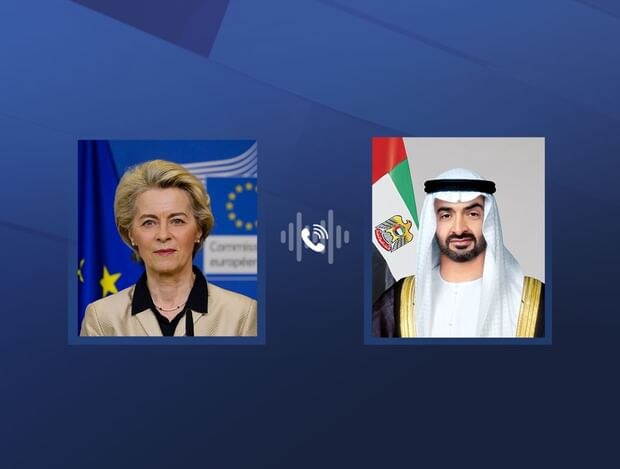DUBAI: UAE President Sheikh Mohamed bin Zayed Al-Nahyan and Ursula von der Leyen, President of the European Commission, held a phone conversation to address the urgent need for a ceasefire in Gaza and Lebanon.
Both leaders emphasized the importance of protecting civilians in line with international law and ensuring the safe and sufficient delivery of humanitarian aid to alleviate their suffering in the conflict zones.
They also discussed efforts to prevent the further escalation of tensions in the Middle East, stressing the need for collective action to contain the conflict, which poses a serious threat to regional security and stability.
The two leaders reiterated their support for a just, comprehensive, and lasting peace in the region, grounded in the two-state solution.
Sheikh Mohamed underscored the UAE’s commitment to working alongside international and regional partners, including the EU, to prevent the expansion of conflict in the Middle East and provide humanitarian aid to civilians.
Sheikh Mohamed and President von der Leyen also reviewed relations between the UAE and the European Union, exploring ways to strengthen ties and achieve shared interests.
Sheikh Mohamed reaffirmed the UAE's commitment to enhancing strategic relations with the EU and its member states, with a focus on mutual development and cooperation in areas such as trade and investment. He also expressed his support for further Gulf-European collaboration to benefit both regions.




























